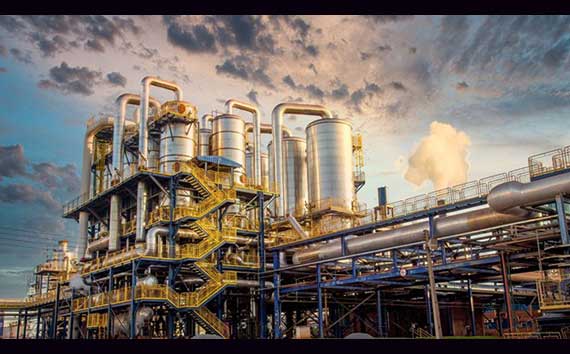Industries play a critical role in powering the economy, fueling growth, and meeting the needs of modern society. However, they are also significant contributors to environmental degradation. From greenhouse gas emissions to waste discharge, industrial processes have far-reaching ecological impacts.
Now more than ever, reducing industrial environmental footprints is not just a matter of corporate responsibility but a necessity. Consumers, governments, and stakeholders are demanding better sustainability practices, pushing industries toward a cleaner and greener future.
This blog will explore actionable strategies industries can implement to reduce their environmental impact while maintaining efficiency and profitability.
Waste Reduction and Recycling
Rethinking Resource Management
Waste generated from industrial processes can significantly harm the environment if not managed properly. Landfills, toxic emissions, and water contamination are some of the many consequences of mismanaged waste.
Solution: A holistic approach to waste management starts with minimizing waste generation. Implementing lean manufacturing techniques like “just-in-time” ordering can reduce excess materials, leading to less trash.
Recycling Inside and Outside the Plant
Recycling isn’t limited to consumer goods; industries can recycle metals, water, and even chemicals used in manufacturing. For example, many automotive manufacturing plants now collect and reuse scrap metals directly on-site, reducing raw material waste.
Switching to closed-loop systems for materials like packaging or cooling fluids further reduces the amount of waste leaving the factory floor. These practices allow businesses to save money and mitigate environmental damage.
Also Read: Why Upgrading Matters: Key Advantages of a Modern Furnace
Optimizing Energy Usage
Upgrade Equipment for Efficiency
One of the leading contributors to carbon emissions is the energy required to operate factories. Outdated systems often consume more energy than necessary, leaving a large carbon footprint in the process.
Solution: Transitioning to energy-efficient equipment and automation systems can significantly cut energy usage. For instance, replacing traditional lighting with LED fixtures or upgrading motors and drives saves power without sacrificing output.
Implement Renewable Energy Sources
Industries can go a step further by investing in renewable energy, like solar, wind, or geothermal power. Renewable energy might demand a higher up-front investment, but long-term savings and government subsidies make it worth considering.
Case in point, companies like Tesla and Apple are setting benchmarks by running their industrial operations on 100% renewable energy sources, setting green goals that inspire competitors.
Choosing Sustainable Materials
Eco-friendly Alternatives
Traditional raw materials used in industrial manufacturing often have significant environmental impacts, from mining to disposal. Sustainable materials, such as biodegradable bioplastics or recycled composites, offer eco-friendlier manufacturing options.
For example, the construction industry is moving toward using fly ash, a waste product from coal plants, as a replacement for Portland cement. This reduces the environmental impact of building materials while offering equal durability.
Advanced Chemical Solutions
Industries dependent on hazardous chemicals in their processes can explore more sustainable alternatives. For instance, industrial wastewater treatment chemicals can now be formulated to achieve better efficiency while reducing harmful residues. Cutting-edge solutions like these strike a balance between industrial growth and sustainability goals.
Improved Water Management
Reuse and Recycle Water
Water demand in industries, particularly in heavy manufacturing and oil refining, is massive. A significant way industries can cut down on water wastage is by recycling and reusing water during their operations.
Solution: Closed-loop water recycling systems capture, treat, and reuse water repeatedly, minimizing consumption and discharge. This method is especially helpful in industries like textiles, where water demand is high.
Treating Industrial Wastewater
Effective wastewater treatment is critical to protecting the environment from contamination. Advanced industrial wastewater treatment chemicals combined with innovation in filtration and biological treatment ensure water leaving the plant is safe for reuse or release into nearby ecosystems.
Engaging Employees in Sustainability
Build a Green Culture
Employees play a huge role in ensuring that industry-wide sustainability strategies succeed. Companies that invest in environmental training and incentivize eco-friendly practices see higher success rates when rolling out green initiatives.
For example, that could mean integrating recycling bins at every level of the plant or introducing rewards for teams contributing ideas that cut down on waste. A green workplace culture aligns everyone with the broader sustainability goals of the business.
Collaboration with Communities
Collaboration shouldn’t stop at factory gates. Industries can partner with local communities to launch tree planting drives, clean up rivers, or provide environmental education programs. Such partnerships can repair strained relationships between businesses and communities while yielding impactful environmental results.
Keep a Long-Term Perspective
Monitoring and Reporting Progress
Sustainability isn’t a one-time fix; it requires a long-term commitment. Industry leaders need to constantly measure progress, identify new eco-friendly technologies, and adapt policies to maintain continuous improvement. Reporting transparently on sustainability practices also goes a long way toward building trust and support from consumers and regulators.
Joining Sustainable Industry Movements
Global organizations like the Science-Based Targets initiative (SBTi) or the UN’s Race to Net Zero provide resources, networks, and frameworks to help industries achieve tangible environmental objectives. Companies that join these groups not only reduce their environmental footprint but also set themselves apart as forward-thinking leaders in their field.
Next Article: 5 Resilient Options for Long-Term Structural Integrity
Building a Greener Industrial Future
Reducing the environmental impact of industrial processes may seem daunting, but every small step makes a difference. From shrinking waste loads to optimizing water usage and investing in sustainable materials, there are numerous ways industries can actively contribute to a healthier planet.
More importantly, sustainability isn’t just about mitigating harm; it’s about creating opportunities. Greener practices often lead to greater efficiencies, better resource allocation, and stronger relationships with consumers and stakeholders.






